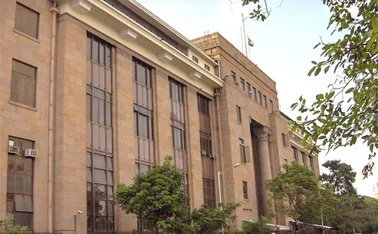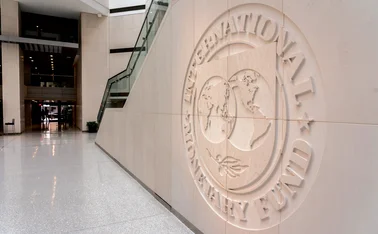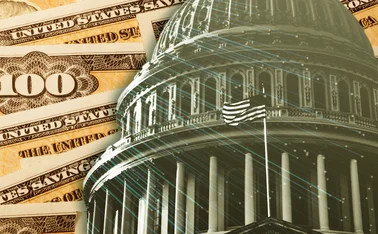
Ortiz on governance, risk and Mexico's progress

Central Banking (CB): The international central banking community widely regards your 11 years at the helm of Banco de Mexico as a success. What do you consider your greatest achievement during this period?
Guillermo Ortiz (GO): We have made a lot of progress in terms of financial stability in Mexico. The current crisis has hit Mexico particularly badly because of a number of factors. But given the severity of this shock, that Mexico is not suffering from a financial crisis is testament to the resilience of the economy and financial sector.
CB: And how has the central bank contributed to this?
GO: The one very important point is the framework of monetary policy. We adopted inflation targeting many years ago and a flexible exchange rate system. One of the many vulnerabilities that had caused crises in the past, the fixed exchange rate, was removed.
Again the combination of inflation targeting and flexible exchange rates has given the central bank freedom in the operation of monetary policy. And this has also contributed to the deepening of financial markets and the developments of capital markets.
During the last Mexican crisis in 1995, the Mexican government could not place paper in the market for more than three months. The yield curve was expanded to one year, five, ten, 20 and then 30 years. So the anchoring of inflation expectations and the monetary policy framework has helped to increase the resilience of the financial sector to real shocks in the economy.
CB: Do you think the current crisis represents your toughest challenge yet?
GO: It's hard to say. 1995 was a very difficult time but 95 was a crisis of our own making. And in many ways, the 1995 crisis was more difficult to deal with because it was accompanied by the threat of default, high inflation, high interest rates, a fall in real wages. This crisis, although perhaps more severe in terms of the contraction of economic activity has not been accompanied by financial upheaval. We have in fact been able to reduce interest rates. And we have a high level of international reserves and this buffer has been very helpful in stabilising financial markets even during the most difficult period of the current crisis.
CB: How helpful do you think the currency swap with the Fed and the IMF credit line have been in tempering market volatility?
GO: Both helped in the stabilisation of financial markets. We had some difficult months after the collapse of Lehman Brothers, like many emerging markets. In the case of Mexico, as well a number of countries such as Brazil and Korea, a number of firms engaged in derivatives that implied large losses and put a lot of volatility in the foreign-exchange markets. Additional buffers that were provided by the Fed and the IMF were an important part of reducing volatility in the foreign-exchange markets.
CB: Without them would Mexico have been able to go it alone?
GO: Well we still have a substantial amount of reserves. We started this year with something like $85 billion in reserves. That's also an important cushion.
Without the support lines I am sure that volatility in the foreign-exchange markets would have been substantially higher and it would have taken longer to stabilise the market volatility.
CB: But it wasn't a turning point?
GO: We do not intend to draw on the flexible credit line and of the $30 billion that was obtained from the Fed, less than $4 billion was utilised. The reason why we have not done another auction related to the swap line is that there does not seem to be a funding problem. And the refinancing of private-sector obligations in dollars is tending to normalise. So the actual use of the support lines was very limited.
CB: About 85% of Mexico's manufacturing exports are to the US. There is also the issue of the fall in remittances. Given this reliance, how is the Mexican economy coping with the recession in the US?
GO: Very much so. Mexico's exports are mostly manufacturing and durable goods, so this crisis which has hit these sectors particularly hard has been the reason why the Mexican economy has contracted more than expected. In addition to that we've had the flu. At the end of April, it hit quite severely the tourist sector, air travel. Plus the fact that restaurants in Mexico City were closed for a month and there were no public events. It's not that it lasted very long, but it was acute.
CB: On 2 June you spoke out about the need to improve tax collection and make labour markets more flexible in order to avoid a downgrade in Mexico's sovereign debt rating. In doing so, you have become one of a number of central bankers that has commented on fiscal policy. Central bankers have traditionally tended to avoid commenting on fiscal policy. Why do you think it is now becoming more common for central bankers to offer their view?
GO: Let me speak in the case of Mexico. It's pretty obvious that we have a high dependence on oil revenues. So the price of oil has been a source of fiscal uncertainty going forward. We've known that for many years and in other episodes when the price of oil has fallen, the government has been forced to adjust fiscally in order to preserve discipline. But I think this is no longer a sustainable situation. We have to fix once and for all the fiscal situation in Mexico and reduce dependence on oil. Mexico has particularly low tax collection notably for VAT and income tax, which are at the core of the tax system. We have a lot of loopholes and it's pretty obvious that tax collection has to be improved on the one hand and expenditures reduced. So that ratings agencies have alerted Mexico regarding the fragility of the fiscal situation is another reason to focus on this problem, not only because of their warnings but because this is highlighting a problem that has to be addressed now.
The crisis has shown some of the vulnerabilities of the Mexican economy, it has also shown some of its strengths. In addition to fixing the fiscal situation we have to implement reforms to increase potential growth and to think beyond the crisis. The crisis is going to pass and the important thing is to increase potential output in an environment that is likely to be less favourable internationally.
CB: You are chair of the Central Bank Governance Group. In a recent report, Issues in the Governance of Central Banks, it was posited that central bank governance will change in the aftermath of the financial crisis. I'd like to hear your thoughts on how you believe governance will change.
GO: This is a report that is not intended to be a best practice guide or a setting of standards for central banks. What we tried to do was to address the most important governance issues.
If you were to set up a central bank from scratch, you would find it useful. Or if you want to upgrade different governance aspects then the contents of this report that collects the experience of many central banks and analyses the pros and cons of practices, would be very useful.
CB: But what's your personal opinion on how governance will change in light of the crisis?
GO: Central banks in general have been or will be given formally more responsibility in terms of financial stability. This means that central banks will need additional resources and also they will be much more in the spotlight and will have to be more accountable. So the governance structure of central banks will have to be strengthened for this higher degree of accountability that the additional responsibilities imply.
CB: So you think that the Obama administration's quid pro quo, where they will give the Federal Reserve overall responsibility for monitoring systemic risk but will insist on a governance review in order to do so, is likely to be repeated elsewhere?
GO:Yes. The idea that there has to be an authority in charge of macroprudential issues that will strengthen financial stability is gaining ground. And also the idea that central banks should be charged with this is gaining ground. And for several reasons. One, central banks are very close to markets, to institutions, they are lenders of last resort,and they also have the highest technical capacity to deal with these macroprudential issues.
CB: A lot of the progress that has been made as regards monetary policy in the past 20 years has been down to central bank independence? And isn't this independence now under threat of being undermined?
GO: One of the risks is that with this heightened responsibility is more visibility and more political pressure, so there is a real concern regarding the degree of independence from political pressures that are likely to occur in the future and we have to be aware of that. And in some ways it's inevitable given the additional responsibilities so I think central banks have to very much be aware of this issue and be able to articulate convincingly the need to preserve their independence and to be as free from political pressure as is possible.
CB: You're now BIS chairman. Post crisis, what do you see as the role of the BIS?
GO: The role of the BIS is to contribute to financial stability. It is a place where privileged policy dialogue takes place between central bank governors and I would say privileged because of the nature of the dialogue, the ability that we have to meet and speak frankly and in confidence. And also, the BIS is secretary to a number of committees that are linked to standard setting in different aspects of the financial system. It is also the secretariat to the FSB [Finanical Stability Board] that has been enhanced and amplified, so the role of the BIS in terms of its contribution to financial stability is multi dimensional. And its likely to be even more important in the future.
Only users who have a paid subscription or are part of a corporate subscription are able to print or copy content.
To access these options, along with all other subscription benefits, please contact info@centralbanking.com or view our subscription options here: http://subscriptions.centralbanking.com/subscribe
You are currently unable to print this content. Please contact info@centralbanking.com to find out more.
You are currently unable to copy this content. Please contact info@centralbanking.com to find out more.
Copyright Infopro Digital Limited. All rights reserved.
As outlined in our terms and conditions, https://www.infopro-digital.com/terms-and-conditions/subscriptions/ (point 2.4), printing is limited to a single copy.
If you would like to purchase additional rights please email info@centralbanking.com
Copyright Infopro Digital Limited. All rights reserved.
You may share this content using our article tools. As outlined in our terms and conditions, https://www.infopro-digital.com/terms-and-conditions/subscriptions/ (clause 2.4), an Authorised User may only make one copy of the materials for their own personal use. You must also comply with the restrictions in clause 2.5.
If you would like to purchase additional rights please email info@centralbanking.com







